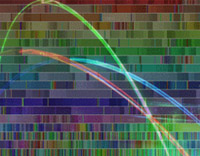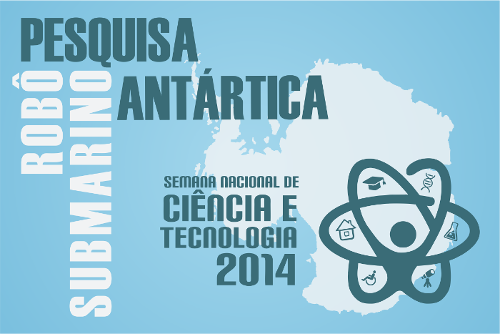Seminário de Data Science: Spectral Remapping for Image Downscaling
- 383
Seminário de Data Science (Image Processing)
Palestrante: Manuel Menezes de Oliveira Neto (UFRGS) Data: 31/08/2018
Horário: 14h
Local: Auditório Jacy Monteiro Título: Spectral Remapping for Image Downscaling Resumo: I will present an image downscaling technique capable of appropriately representing high-frequency structured patterns. Our method breaks conventional wisdom in sampling theory -- instead of discarding high-frequency information to avoid aliasing, it controls aliasing by remapping such information to the representable range of the downsampled spectrum. The resulting images provide more faithful representations of their original counterparts, retaining visually-important details that would otherwise be lost. Our technique can be used with any resampling method and works for both natural and synthetic images. I will demonstrate its effectiveness on a large number of images downscaled in combination with various resampling strategies. By providing an alternative solution for a long-standing problem, our method opens up new possibilities for image processing. This is joint work with Eduardo S. L. Gastal. Short Bio: Manuel Menezes de Oliveira Neto é Professor Associado do Instituto de Informática da Universidade Federal do Rio Grande do Sul (UFRGS). Ele obteve seu doutorado pela University of North Carolina at Chapel Hill, Estados Unidos, em 2000. Antes de ingressar na UFRGS em 2002, foi Professor Assistente no Departamento de Ciência da Computação da State University of New York at Stony Brook (2000 a 2002). Durante o ano acadêmico 2009-2010, foi Visiting Associate Professor no MIT Media Lab. Seus interesses de pesquisa incluem computação gráfica, processamento de imagens, fotografia computacional e visão (tanto humana como de máquina). Nessas áreas, ele desenvolveu diversas técnicas, incluindo mapeamento de textura de relevo (relief texture mapping), técnicas de filtragem de imagens e vídeos em tempo real em espaços de alta dimensionalidade, algoritmos eficientes para a transformada de Hough, novos modelos baseados em fisiologia para a percepção de cores e para o reflexo pupilar à luz, e novas técnicas interativas para avaliação de acuidade visual. O Professor Manuel é Conferencista Senior da Sociedade Brasileira de Computação (SBC) na área de Computação Gráfica. Foi co-chair do comitê de programa do ACM SIGGRAPH Symposium on Interactive 3D Graphics and Games 2010 (I3D 2010) e co-chair do comitê organizador do ACM I3D 2009. Ele é membro do Comitê Técnico TC1-89 da CIE (Comissão Internacional sobre Iluminação). Foi co-chair dos comitês de programa do SCGVRIP 2014 (parte do CLEI 2014), WSCG 2013, e SIBGRAPI 2006. Recebeu o ACM Recognition of Service Award em 2009 e em 2010, e o Prêmio Pesquisador Gaúcho, em 2016, conferido pela FAPERGS, na categoria Pesquisador Destaque em Matemática, Estatística e Computação. Todos são bem-vindos!
Seminar: Music analysis
- 0
This workshop introduces the Probabilistic Latent Component Analysis method (PLCA) in the context of automatic music transcription, demonstrating practical use cases. Automatic music transcription (AMT) is one of the fundamental problems of music information retrieval and is defined as the process of converting an acoustic music signal into some form of music notation. In this workshop, you will learn how to create statistical models (PLCA) for music note detection and music instrument identification from the time-frequency-domain representation of audio signals.
- Programming skills (preferable MATLAB),
- Basic knowledge on signal processing (FFT, spectrograms).
Mini-curso - Deep Learning
- 411
Boa noite! Algumas novidades sobre o mini-curso. Todas as aulas e o
seminário serão disponibilizados via youtube neste canal no horário
das palestras:
https://www.youtube.com/channel/UCtak5IDFnWfSyVesnJnG3Mg/featured
O seminário será na sala B144, sexta-feira, 29/6, 14h
Title: Towards More Robust Outdoor Compute Vision: A Case Study on Haze
Abstract:
While many sophisticated models are developed for visual information
processing, very few pay attention to their usability in the presence
of data quality degradations. Most successful models are trained and
evaluated on high quality visual datasets. On the other hand, the
robustness of those computer vision models are often not assured in
degraded visual environments. Especially for outdoor scenarios. low
target resolution, occlusion, motion blur, missing data, poor light,
and bad weather conditions, are all ubiquitous for visual recognition
in the wild. In this talk, I will use haze as a case example, to
introduce our progress on handling non-standard outdoor visual
degradations, using deep learning methods. I will go through first
single image dehazing, follow by video dehazing, then coming to
introduce our recent benchmarking and evaluation efforts.
Até amanhã,
Roberto
------------------------------
Nesta semana e na próxima (21/6-29/6) teremos a visita de um
pesquisador da Texas A&M University, o Zhangyang (Atlas) Wang, que
trabalha com visão computacional, multimedia e aprendizado de máquina.
A visita dele incluirá a continuação de uma colaboração com o grupo de
visão do IME, conversas com eventuais interessados em ampliar a
colaboração com a TAMU, um mini-curso de quatro aulas e um seminário.
As aulas do mini-curso serão na sala _144 do bloco B_ nos seguintes
horários (peço encarecidamente que, quem for participar, seja
pontual):
Segunda, 25/6, 10h
Terça, 26/6, 8h30
Quarta, 27/6, 8h30
Quinta, 28/6, 10h
Segue abaixo um resumo do curso e uma pequena biografia do Atlas.
"In this short course, I will start by introducing the basic ideas of
deep learning, and go through a number popular deep architectures for
image processing and computer vision. I will then present an overview
of how deep learning has advanced the state-of-the-arts for a vast
range of image processing and computer vision applications, including
image denoising, image deblurring, image super resolution, object
detection and recognition, image dehazing, and so on. Latest research
trends will be summarized and discussed Following those, I will
discuss our recent study on how we could achieve a unified pipeline
solution for visual analytics in visually degraded environments,
including the challenges, existing efforts, and broad applications."
Short Bio:
Dr. Zhangyang (Atlas) Wang is an Assistant Professor of Computer
Science and Engineering (CSE), at the Texas A&M University (TAMU).
During 2012-2016, he was a Ph.D. student in the Electrical and
Computer Engineering (ECE) Department, at the University of Illinois
at Urbana-Champaign (UIUC), working with Professor Thomas S. Huang.
Prior to that, he obtained the B.E. degree at the University of
Science and Technology of China (USTC), in 2012. He was a former
research intern with Microsoft Research (summer 2015), Adobe Research
(summer 2014), and US Army Research Lab (summer 2013). Dr. Wang’s
research has been addressing machine learning, computer vision and
multimedia signal processing problems, as well as their
interdisciplinary applications, using advanced feature learning and
optimization techniques. He has co-authored over 40 papers, and
published several books and chapters. He has been granted 3 patents,
and has received around 20 research awards and scholarships. He served
as a guest editor for IEEE TNNLS and EURASIP JASP/JBSB; an Area Chair
for WACV 2019 and ICIP 2017; a TPC co-chair for ICCV AMFG 2017; a
special session co-chair for VCIP 2017; a tutorial organizer/speaker
in SIAM IS 2018, CVPR 2017 and ECCV 2016; a workshop organizer in IEEE
FG, IJCAI and SDM; and a regular reviewer or TPC member for over 40
top journals and conferences. His research has been covered by
worldwide media, such as BBC, Fortune, International Business Times,
TAMU news, and UIUC news & alumni magazine.
More could be found at:
www.atlaswang.com











